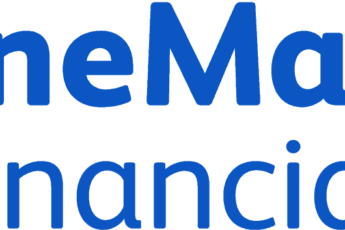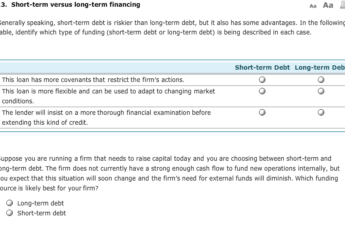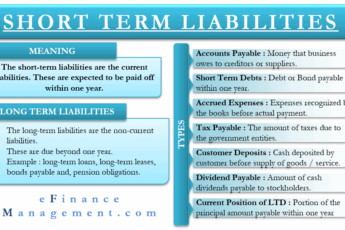A short term loan against property can help you meet a short-term need for temporary capital. These loans are usually paid off in less than a year and offer lower interest rates than longer-term loans. You can apply online for a short-term loan against property and get the money you need to meet your needs.
Peer-to-peer loans
Peer-to-peer loans are a way to get short term loans against property without a bank. You can make monthly payments to your lender in return for the loan amount, and the repayments are divided among lenders. These loans are not as invasive as traditional bank loans, as they do not require face-to-face meetings, or even personal identification. While you will still need to provide certain documentation and financial information to the lending company, the process is much more convenient. You will also be able to track your repayment amount and track your earnings through the P2P lending platform.
When applying for a loan through a peer-to-peer platform, you will first need to fill out an application form. The application will ask for certain details about your property and income. The lender will review your information and decide if the loan is a good fit for you based on your profile and the terms of the loan. If approved, the loan process can take anywhere from one day to two weeks.
Most peer-to-peer loan platforms use technology to manage the lending process. Once approved, the lender will send you financing offers from multiple investors. The investor may be a single individual or multiple companies. In either case, the investor will receive a percentage of the loan amount as repayment.
Peer-to-peer lending is an alternative way to borrow money from a bank without the hassle of a traditional bank account. While traditional bridging loans are funded by a few large investors, P2P loans are funded by hundreds of individuals. Unlike traditional bridging loans, P2P loans are much easier to track and administer thanks to digital systems.
Car title loans
For people who need a quick infusion of cash but don’t have access to their bank account, car title loans can be an easy way to secure the cash you need. These loans are secured against your property, so you won’t lose it if you fail to make your payments. They are also ideal for people with poor credit, since most title lenders don’t run credit checks. You can also take advantage of “borrow and save” programs at some credit unions, which allow borrowers to take out small loans and set aside a portion of the loan amount in a savings account. This will allow you to have extra cash to pay bills or cover other expenses.

Car title loans come with a range of terms, from 15 to 30 days. In some states, you can extend your loan for a further period, but this will increase your interest and fees. You may also be required to provide proof of insurance or a second set of car keys. However, you will be able to keep your car for the entire repayment process, unlike with a payday loan. This is important to consider before making a decision.
Car title loans are available online or at a local store. You’ll need to present a valid driver’s license, proof of insurance, and the title to your vehicle. Some lenders may also require you to install a GPS tracking device on your car or disable the ignition.
These loans are fast and easy to obtain. While most of them don’t require credit checks, they can be costly over time. A $15,000 loan, for example, will cost you about $270 monthly. In total, you’ll end up paying nearly $32,000 in interest over the life of the loan. So it’s important to compare rates and fees before deciding on a loan.
Home equity loans
Home equity loans are a great option for home owners with equity in their home and a low debt-to-income ratio. They allow the borrower to access a large lump sum of money that they can repay over a long period of time. Moreover, the interest rates on home equity loans are generally lower than other consumer loans.
However, these loans can be hard to qualify for if your credit score is under 620. It’s therefore important to work on improving your credit score before applying for a home equity loan. If you don’t have a good credit score or a high income, you can consider other types of loans to obtain the funds you need.
When applying for a home equity loan, you’ll be charged closing costs and other fees. However, many banks will cover these fees if you pay off your loan within three years. Other fees can include account annual fees and processing fees for setting a fixed rate plan. Most lenders require a credit score of at least 620, although some require higher minimums. While higher credit scores can result in lower interest rates, it’s always best to consult with your financial institution before applying for a home equity loan.
A home equity loan is an easy way to access cash, but be careful to make sure it fits your needs. A home equity loan is like a second mortgage, but with a different interest rate and a fixed payment schedule. A HELOC is also flexible, allowing you to make interest-only payments during the draw period.

Home equity loans can be risky, especially for those with low income, as you risk losing your home to the bank if you can’t repay the loan. Applicants should provide information on their income and assets and disclose any existing home equity accounts. Also, they should include Social Security numbers, date of birth, marital status, and employment status. Finally, they should submit recent pay stubs and W-2 forms.
Personal loans
There are many ways to get short term personal loans against property. One option is to apply through a credit union or a local bank. These types of loans often don’t require collateral and are often approved despite bad credit. These loans are a good option if you need money immediately, but don’t have enough money to pay for the entire loan upfront.
Another option is a bank that extends unsecured personal loans. Some banks offer personal loans against property, while others offer secured personal loans against vehicles. Typically, these loans are short-term and are funded within a week. However, you should carefully consider the total cost of the loan over time. For example, if you take out a $15,000 loan over a two-year period, you’ll be paying about $270 per month in interest. The cost of the loan will be around $32,430 over its lifetime.
The interest rate for unsecured short-term personal loans is higher than for secured long-term loans. This is because the lender has little recourse when you default on the loan. Because of the higher risk, lenders often charge higher interest rates. However, if you want to pay off your loan early, look for a lender without a prepayment penalty. Some lenders, such as Lightstream, SoFi, and Upstart, do not charge prepayment penalties.
Another option is to apply online for a short-term loan. The application process is usually easy and quick. You’ll need to provide a current income source and a checking account, and some other basic information. Many of these online loans are approved within a day or two. However, you should carefully read the terms and conditions of the loan agreement.
Term loans secured by property
Term loans are a great way for business owners to get the cash they need. To get a term loan, business owners need to apply for one and provide financial proof that shows they have credit worthiness. Once they have been approved, they get a lump sum of cash and have to make repayments over a set period of time. The repayment schedule is usually monthly.
Term loans are available for up to 12 months. However, they can be extended for longer terms if the need arises. These loans are a great way to tide you over during the property purchase process and free up cash flow to make other purchases. Furthermore, term loans can be used for small expenses as well as growth projects.

Term loans are available in many forms. The two most popular types of secured loans are home equity loans and mortgage loans. Depending on the amount of money you need, you may be able to find a loan that meets your needs. A secured loan will protect you from financial default by requiring you to put up collateral. If you can’t repay the loan, lenders will sell the collateral to recoup their loss.
Term loans secured by property are often used for business expansion and to purchase new equipment. The advantage of a term loan is that you pay it back over a set period of time in equal monthly installments. You will also enjoy lower interest rates as compared to other types of loans. Term loans are typically available for three to twenty years, depending on the length of the loan.











